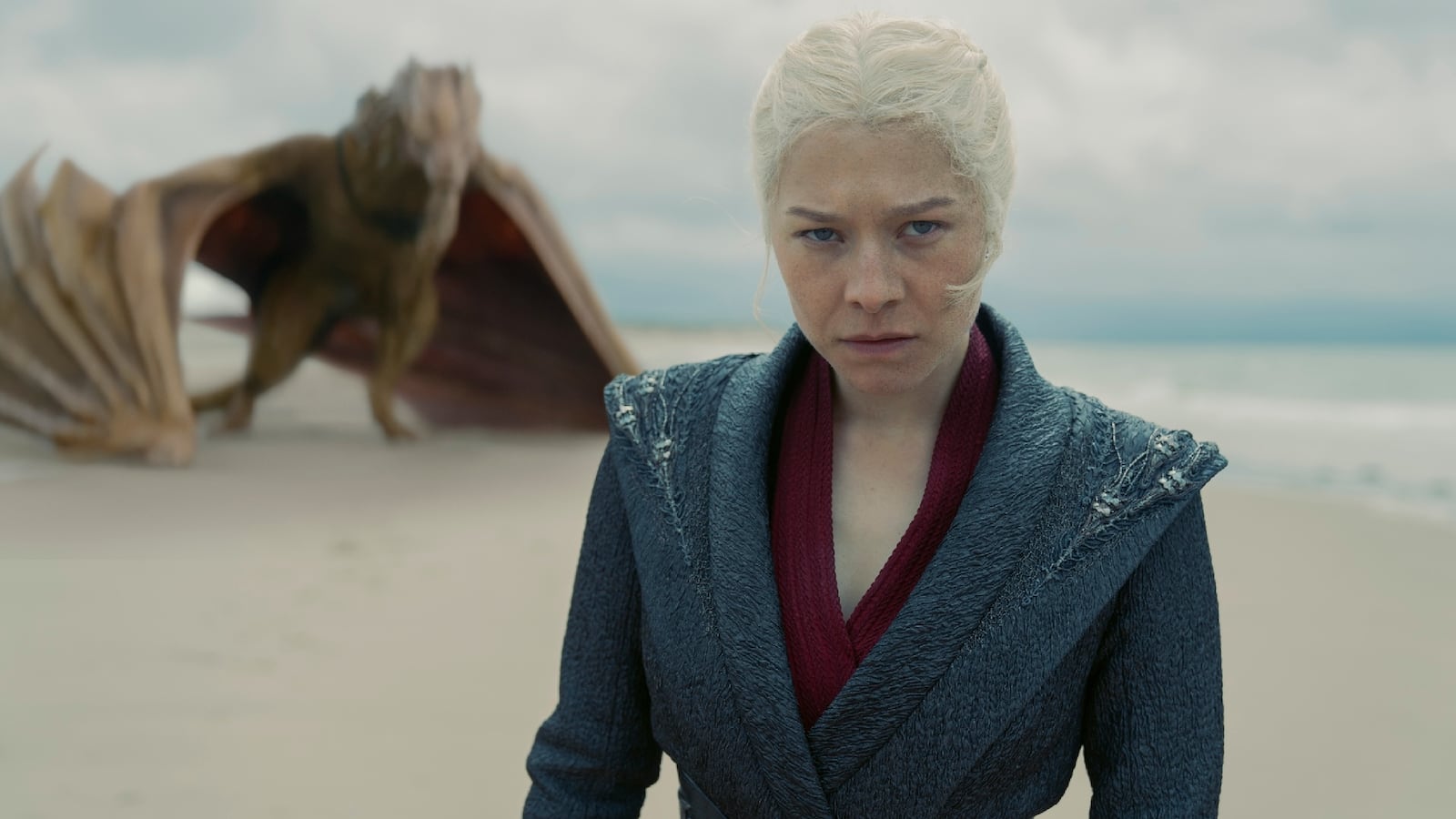Found family. The hero’s journey. Forbidden, unrequited love. Insurmountable odds. They’re all tropes of the fantasy genre, common themes found across literature, television, film—from A Song of Ice and Fire to The Lord of the Rings, The Wheel of Time to Harry Potter. There is, however, one other prominent theme, one which the latest episode of House of the Dragon, titled “Smallfolk,” delved into: reluctant leadership, and the suitability of those who do not seek power, but find it seeks them.
Camped out at Harrenhal, Daemon Targaryen has spent much of Season 2 contending with the mysterious Alys Rivers, while ruminating over the crown, the throne, and his past mistakes through dreams and nightmares. The most recent episode saw his proclamation before a weirwood tree that Rhaenyra “… never even wanted it”, referring to the crown, to which Alys’ response is a great summation on the essence of this piece: “That’s perhaps why your brother gave the crown to her. Perhaps those who strive for it are the least suited to wear it.” The line taps into the respective suitability to power for both Daemon and Rhaenyra, while also standing as an elegant line of dialogue in itself.
It’s an idea that’s in-keeping with how House of the Dragon has portrayed Rhaenyra Targaryen when compared to her counterparts on the Green side: Aegon, and now Aemond, and indeed, to Daemon himself, but one that also taps into this wider theme that is prevalent across fantasy storytelling.
While Aegon was admittedly reluctant at first, the trappings of power quickly consumed him, as we saw in the Dragonpit during Season 1. Aemond has sought power from a young age in a desperate bid to overcome his perceived weakness as a child, and the trials he endured for it. Daemon is more complex in this regard, being both a second son, a one-time heir, and drastically different to his elder brother—more martial, more authoritative, more bloodthirsty, eager for acknowledgement and validation—his desire is mired in myriad things. Part chauvinism, part expectation, part out-and-out lust for power, and in part, a genuine desire to keep others safe, albeit in his own warped way.

Matt Smith
HBORhaenyra, on the other hand, was proclaimed heir by Viserys, and only sought out the Iron Throne after her father passed and it was snatched from her, then repeatedly demonstrated a commitment to eschew war—at least until it became an inevitability. In that, and in so many other ways, Rhaenyra has demonstrated a suitability to rule far beyond any of her counterparts, held back only by misogyny and primogeniture.
This quality isn’t anything new in fantasy, although it is in itself a slight change from her characterisation in George R.R. Martin’s Fire and Blood, where the unreliable narrator device paints her to be something of a monster at times—a far cry from the figure Emma D’Arcy has brought to life on screen.
We saw similar traits in Jon Snow during Game of Thrones—reluctantly taking on the mantle of Lord Commander of the Night’s Watch, the title of King in the North, and the role of leadership in ending Daenerys’ brief reign. Peter Jackson’s Lord of the Rings films are no different, elegantly tweaking Aragorn’s character from a man questing for his rightful throne, to one whose sole focus is protecting his loved ones and his charges, with the throne being but a passing thing that finds him in the end.

Harry Collett and Emmy D'Arcy
HBORegardless of your feelings on the novels, or the architect behind them, the Harry Potter series perhaps states it best. In the words of Albus Dumbledore: “It is a curious thing, Harry, but perhaps those who are best suited to power are those who have never sought it. Those who, like you, have leadership thrust upon them, and take up the mantle because they must, and find to their own surprise that they wear it well.”
That sentiment applied to Harry Potter in his battle against Voldemort. It applied to Aragorn in the Fellowship’s quest to Mount Doom. It applied to Jon Snow throughout Game of Thrones and A Song of Ice and Fire, and it applies to Rhaenyra Targaryen here. Readers of Fire and Blood know where Rhaenyra’s journey ends, and while House of the Dragon has shown a willingness to shake things up from the source material, we can be fairly confident that her arc in the show will fit into established canon. However it plays out though, Rhaenyra has provided yet another example of one of fantasy’s most tried and true tropes.






